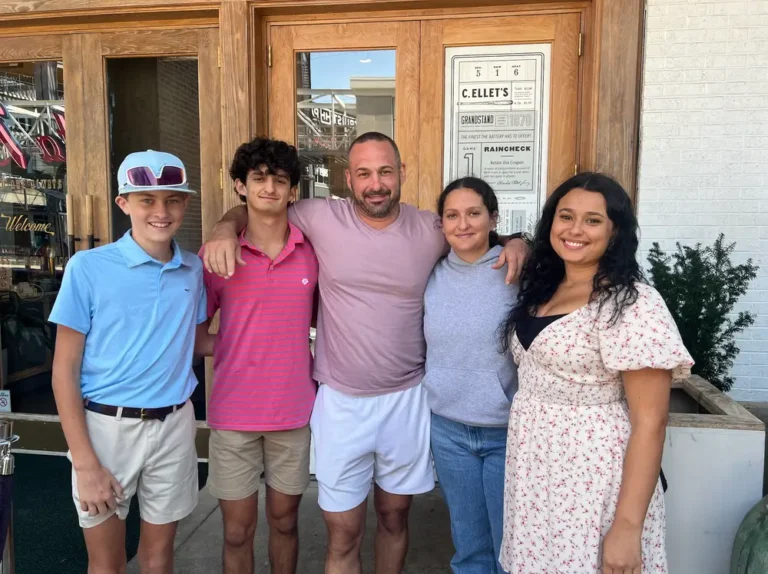Mercenary chief Prigozhin is presumed to have died in a plane crash seen as the Kremlin’s revenge

Russian mercenary chief Yevgeny Prigozhin and some of his top lieutenants were presumed dead Thursday in a plane crash widely interpreted as an assassination to avenge a mutiny against President Vladimir Putin.
According to Russia’s civil aviation authority, the founder of the Wagner military company and six other passengers were on a private jet that crashed Wednesday shortly after taking off from Moscow with a crew of three. Rescuers discovered ten bodies, and Russian media reported that Prigozhin was dead, citing anonymous sources in Wagner. However, no official confirmation has been provided.
If the deaths are confirmed, the crash would be the most serious blow to the group’s leadership that it has ever suffered. The passenger list included Prigozhin and his second-in-command, who gave the group his nickname, as well as Wagner’s logistics chief, a fighter injured by US airstrikes in Syria, and at least one possible bodyguard.
It was unclear why several high-ranking members of Wagner were on the same flight, including top leaders who are normally extremely cautious about their security. The reason for their trip to St. Petersburg was unknown.
Six of Prigozhin’s lieutenants were among the other passengers, as was the flight crew of three.
At Wagner’s headquarters in St. Petersburg, lights in the shape of a large cross were turned on, and Prigozhin supporters erected a makeshift memorial, piling red and white flowers, company flags, and candles outside the building on Thursday.
Putin finally spoke out about the crash, expressing condolences to the families of those on board the plane, including Prigozhin.
The passengers, he said, had “made a significant contribution” to the fighting in Ukraine.
“We remember this, we know, and we will not forget,” the president said in a televised interview with Denis Pushilin, the Russian-installed leader of Ukraine’s partially occupied Donetsk region.
Putin described Prigozhin as “a man of difficult fate” who had “made serious mistakes in life, and he achieved the results he needed — both for himself and, when I asked him about it, for the common cause, as in these last months.” He was a gifted man and a gifted businessman.”
Russian state media has largely ignored the crash, instead focusing on Putin’s remarks via video link to the BRICS summit in Johannesburg and Russia’s invasion of Ukraine.
Meanwhile, police cordoned off the field where the plane crashed in Kuzhenkino, about 300 kilometers (185 miles) northwest of Moscow, while investigators examined the wreckage. The bodies were removed by vehicles.
According to several Russian social media channels, the bodies were burned or disfigured beyond recognition and would need to be identified using DNA. The reports were picked up by independent Russian media, but The Associated Press was unable to confirm them independently.
On pro-Wagner messaging app channels, Prigozhin supporters claimed that the plane was deliberately downed, even suggesting that it could have been hit by a missile or targeted by a bomb on board. Those claims were not independently verifiable.
Sergei Mironov, the leader of the pro-Kremlin Fair Russia party and former chairman of the Russian parliament’s upper house, suggested on his Telegram channel that Prigozhin was murdered on purpose.
“Prigozhin messed with far too many people in Russia, Ukraine, and the West,” wrote Mironov. It appears that his number of enemies reached a tipping point at some point.”
According to Russian authorities, the cause of the crash is being investigated.
Anastasia Bukharova, 27, of Kuzhenkino, said she was walking with her children when she saw the jet, “and then — boom! — it exploded in the sky and began to fall down.” She claimed she ran with the children because she was afraid it would hit houses in the village, but it instead crashed into a field.
“Something sort of was torn from it in the air, and it began to go down and down,” she explained.
Numerous opponents and critics of Putin have been killed or seriously injured in apparent assassination attempts, and US and other Western officials have long expected Putin to pursue Prigozhin, despite promising to drop charges in a deal that ended the June 23-24 mutiny.
“It is no coincidence that the whole world immediately looks to the Kremlin when a disgraced ex-confidant of Putin suddenly falls from the sky, two months after he attempted an uprising,” said German Foreign Minister Annalena Baerbock, while admitting that the facts were still unclear.
“We know this pattern… in Putin’s Russia — deaths and suspicious suicides, falls from windows that all end up being unexplained,” she added.
Ukraine’s President Volodymyr Zelenskyy also raised his hand. “This has nothing to do with us.” “Everyone knows who does,” he said.
The flight manifest included Dmitry Utkin, who was long thought to be the founder of Wagner, according to the civil aviation authority. Utkin’s call sign was Wagner, which became the name of the company. According to the Dossier Center and Bellingcat investigations, he was a retired special forces officer and a member of Russia’s GRU military intelligence service, and he was in charge of Wagner command and combat training.
Other high-ranking associates named on the manifest included Valery Chekalov, Wagner’s logistics mastermind in charge of managing mercenaries and securing weapons, and Yevgeny Makaryan, who was injured while fighting alongside Wagner in Syria.
The crash occurred the same week that Russian media reported that Gen. Sergei Surovikin, a former top commander in Ukraine who was allegedly linked to Prigozhin, had been fired as commander of Russia’s air force.
Prigozhin had long been outspoken and critical of how Russian generals were conducting the war in Ukraine, where his mercenaries were among the most ferocious Kremlin fighters. For a long time, Putin seemed content to allow such infighting — and Prigozhin appeared to have unusual freedom to express himself.
However, Prigozhin’s brief rebellion upped the ante. His mercenaries stormed the southern Russian city of Rostov-on-Don, capturing the military headquarters without firing a single shot. They then drove to within 200 kilometers (125 miles) of Moscow and shot down several military planes, killing over a dozen Russian pilots.
Putin initially called the uprising, the most serious challenge to his 23-year rule, “treason” and a “stab in the back.” He vowed to punish those responsible, and the world awaited his next move, especially since Prigozhin had publicly questioned Russian President Vladimir Putin’s justifications for the war in Ukraine, which was seen as a red line.
Instead, Putin struck a deal that ended the mutiny in exchange for amnesty for Prigozhin and his mercenaries and permission to relocate to Belarus.
Many people believe that the punishment has finally arrived.
“The plane’s downing was certainly no mere coincidence,” said Janis Sarts, director of NATO’s Strategic Communications Centre of Excellence, to Latvian television.
Even if confirmed, Prigozhin’s death will have little impact on Russia’s war in Ukraine. His forces fought some of the bloodiest battles in the last 18 months, but retreated from the front lines after taking Bakhmut in late May. Following the rebellion, Russian officials stated that his fighters could only return to Ukraine as part of the regular army.
According to the Institute for the Study of War, the move against Prigozhin and his top associates was likely “the final step to eliminate Wagner as an independent organization.”
According to Abbas Gallyamov, a former speechwriter for President Putin turned political consultant, Putin had to intervene because Prigozhin “shoved Putin’s face into the dirt in front of the whole world” by carrying out the mutiny and remaining free.
Failure to punish Prigozhin would have provided a “open invitation for all potential rebels and troublemakers,” according to Gallyamov, so Putin had to act.
The Associated Press reviewed flight tracking data and discovered that a private jet previously used by Prigozhin took off from Moscow on Wednesday evening, and its transponder signal vanished minutes later.
Grey Zone, a pro-Wagner Telegram channel, shared videos of a plane falling like a stone from a large cloud of smoke, twisting wildly as it fell, with one of its wings apparently missing. A free fall like that is usually caused by severe damage to an aircraft, and a frame-by-frame AP analysis of two videos was consistent with some sort of mid-flight explosion.





